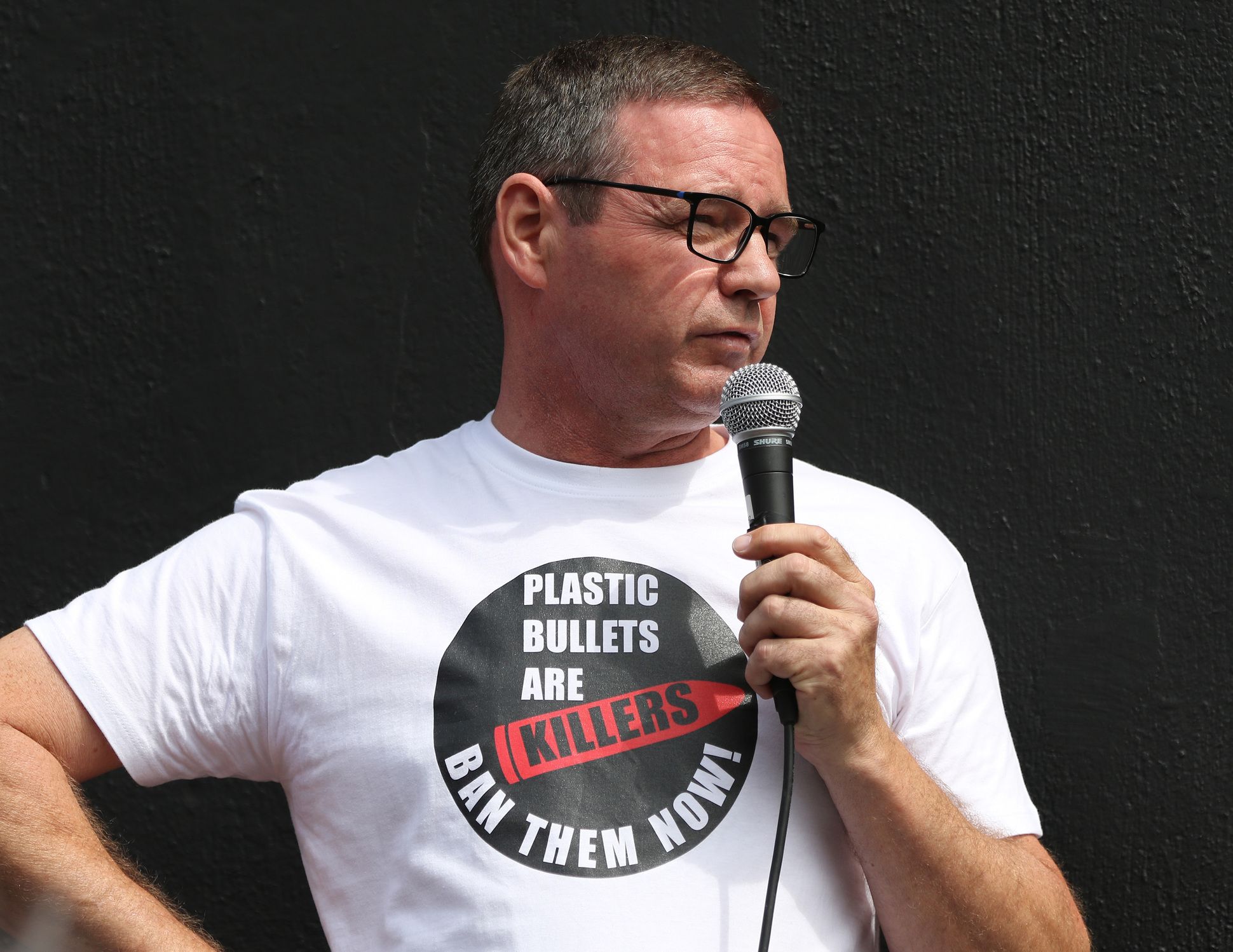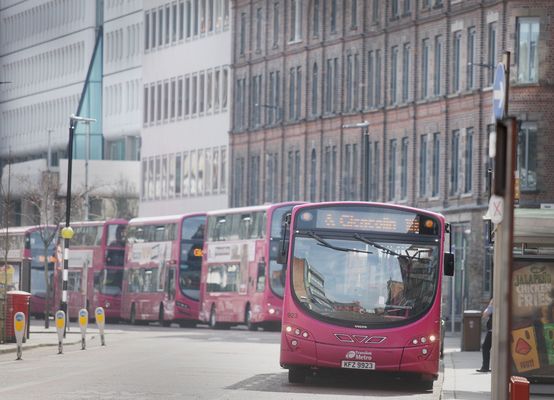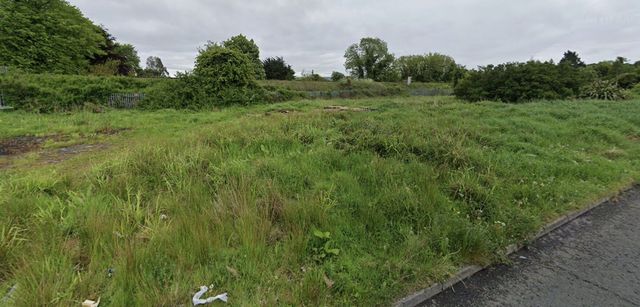NEWLY declassified Ministry of Defence files have shown that the British Army and MoD were fully aware of the danger and threat to life posed by the use of rubber and plastic bullets in the North.
Recently uncovered documents reveal that the British government, army and the RUC knew about the lethal consequences of such weapons at a time when their ‘less than lethal’ capabilities were promoted. The claims were broadcast on BBCNI's Spotlight programme on Tuesday night.
Rubber bullets were introduced onto the streets of the North of Ireland by the British Army in 1971. In 1975 they were were replaced by plastic bullets.
The official line that plastic bullets are ‘less than lethal’ is still used by the PSNI today, despite evidence to the contrary and the fact that a total of 17 people were killed during the conflict, eight of them children, from plastic and rubber bullets, and in 1999 a report by the Independent Commission on Policing found that 615 people had received serious injuries from plastic bullets between 1981-1999. Over 120,000 such rounds were fired during the conflict.
Seven of the 17 deaths occurred during 1981, a year in which the British Army and RUC fired no less 29,695 plastic bullets.
Spotlight focused on recent findings that the RUC were firing a plastic bullet gun which had not been cleared for use and how this information was kept quiet.
The PSNI currently sit on a stockpile of around 50,000 such bullets which have not been cleared for use anywhere else in the UK except for the North of Ireland.
Families and the group United Campaign Against Plastic Bullets (UCAPB) have long maintained, as have victims' group Relatives for Justice, that the bullets were also doctored to include objects such as coins, batteries and razor blades to cause even more injury. Recent British Army veteran forums and websites have seen former soldiers boast about carrying out such acts.
Those injured and families of those killed by rubber and plastic bullets deserve to know truth - Kelly https://t.co/tTN1DFAony @GerryKellyMLA pic.twitter.com/cLkpsTltxp
— Sinn Féin (@sinnfeinireland) March 14, 2023
Speaking to the Andersonstown News, Mark Kelly of UCAPB, whose 11-year-old sister Carol Ann Kelly was hit by a plastic bullet fired by a British soldier in Twinbrook on May 19 1981 and died three days later on 22 May, said plastic bullets have always been known to be lethal and again called for their use to be banned.
“Seventeen people were killed by plastic bullets and it was obvious to everyone they were lethal. The dogs on the street knew they were lethal. Not only were the weapons lethal but their use was also lethal. They weren’t used within guidelines. They were aimed at people’s heads and upper body knowing they were going to cause serious injury or death.
“I think it’s very imporant we keep the campaign going. We understand there won’t be a lot of justice involved because Britain doesn’t do justice. We’re trying to get these bullets banned because somebody else will be killed by them, there’s no doubt about it.
“The peace process is currently in peril and if the DUP don’t go along with this agreement who knows where we’re going to go. The last thing we want to do is see another child killed or any family to have to go through what our families went through.”
Mark stated that the British government continue to uphold the use of plastic bullets and was continuing to train officers in the use of these weapons.
“The British government have upped spending of these weapons and they had also trained another 1,000 officers in England and Scotland how to use these weapons but only for them to be used in the North of Ireland. They aren’t authorised to be used anywhere else.
“These bullets were travelling at 270kmh before they hit people and we also know they doctored them by putting razor blades in them, they took the caps off them and put batteries in them. They say they’re less than lethal but when they’re doctored they’re not less than lethal.
“Banning them is the only way to go and it’s the only thing we’ll settle for and it’s what we’ll continue to fight for.”
120,000 'baton rounds' (rubber or plastic bullets) were fired during the Troubles.
— Kevin Meagher (@KevinPMeagher) March 14, 2023
17 people killed. 8 of them children. Youngest was 10.
16 of the victims were Catholic.
Baton rounds NEVER used in Britain. Ever.https://t.co/YO5nC8PiAo
Mark Thompson from Relatives for Justice, who have worked with many of the families affected by – as well as victims of plastic and rubber bullets, said: “The British government and the MoD knew these weapons were faulty and rather than replace them they were happier instead to pay out compensation to people killed and injured. That’s the indicative approach and the attitude towards Irish lives by the British government. It’s scandalous, it’s disgraceful and it’s abhorrent.
“Today plastic bullets are still in the armoury of the PSNI and they should be banned. They can call them what they want and dress them up how they want and talk about guidelines for use but at the end of the day these are lethal weapons which are used indiscriminately.”
Mark also stated that all inquests so far into those killed by plastic bullets have exonerated victims but this has not led to any accountability for the perpetrators.
“All of the inquests so far have exonerated those killed of any wrongdoing. At the time when people were killed and injured the same old lies were told about throwing stones, petrol bombs, and rioting and having to fire to protect police and soldiers. When this was examined there was vindication of the victims and clear culpability established but yet there has been no accountability.
“There is an accountability vacuum for the use of plastic and rubber bullets and now families are left facing the British government’s new Legacy Bill which seeks to remove that altogether.”






